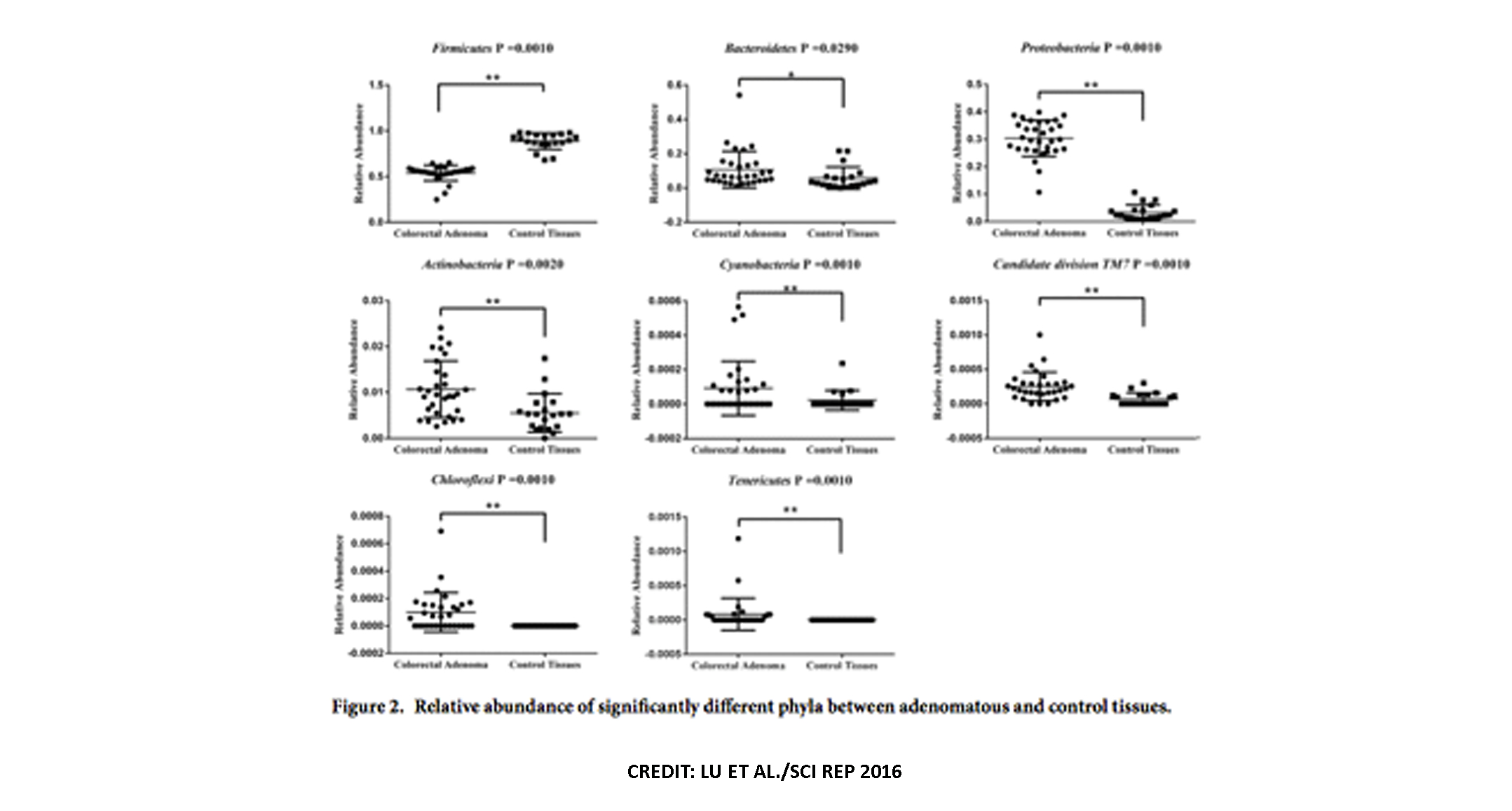It has been previously reported that the gut microbiota might influence cancer outcomes through its interaction with host immunity at different levels. Current scientific evidence indicates that the gut microbiota may play a role in the progression from normal to advanced adenoma, and subsequently to colorectal cancer (CRC). Controversial data exist regarding the gut microbiota composition associated with CRC or advanced adenoma, and little is known about bacterial communities in patients with colorectal adenomas (precursors to CRC).
A recent study, led by Dr. Yue Zeng from the Department of Gastroenterology at Shanghai Jiao Tong University School of Medicine in Shanghai (China), has found that colorectal pre-neoplasic lesions may be the most important factor leading to mucosal adherent bacterial dysbiosis in patients with colorectal adenomas.
The researchers characterized the structure of tissue microbiota in colorectal mucosal biopsies from polyp patients (n=31) (adenomatous polyp tissue and matched normal adjacent tissue) and healthy volunteers (n=20) to study bacterial changes that might accompany early stages of CRC, using a deep sequencing platform.
Microbiota diversity was significantly higher in samples from patients with colorectal adenomas compared with healthy controls. This increase in microbiota diversity seems to be transient and driven by local changed gut environment that may favour increased abundance of specific taxa such as Lactococcus. Besides this, relative abundance of eight phyla (Firmicutes, Proteobacteria, Bacteroidetes, Actinobacteria, Chloroflexi, Cyanobacteria, Candidate-division TM7, and Tenericutes) was significantly different between adenomatous and control tissues. Lactococcus and Pseudomonas were enriched in preneoplasic tissue, whereas Enterococcus, Bacillus, and Solibacillus were reduced. Bacterial structure separation between colorectal adenomatous and healthy tissues supports the idea that disease could contribute to the change in tissue microbiota structure. There were no differences between bacterial communities of colorectal adenomatous and adjacent non-adenoma tissues.
In conclusion, this study suggests that mucosal adherent microbiota could play a role in colorectal adenoma, the precursor to CRC. Longitudinal studies are required to investigate this concept further. These novel findings may help in developing new preventative strategies for CRC in the future.
Reference:
Lu Y, Chen J, Zheng J, et al. Mucosal adherent bacterial dysbiosis in patients with colorectal adenomas. Sci Rep. 2016; 6:26337. doi:10.1038/srep26337.


